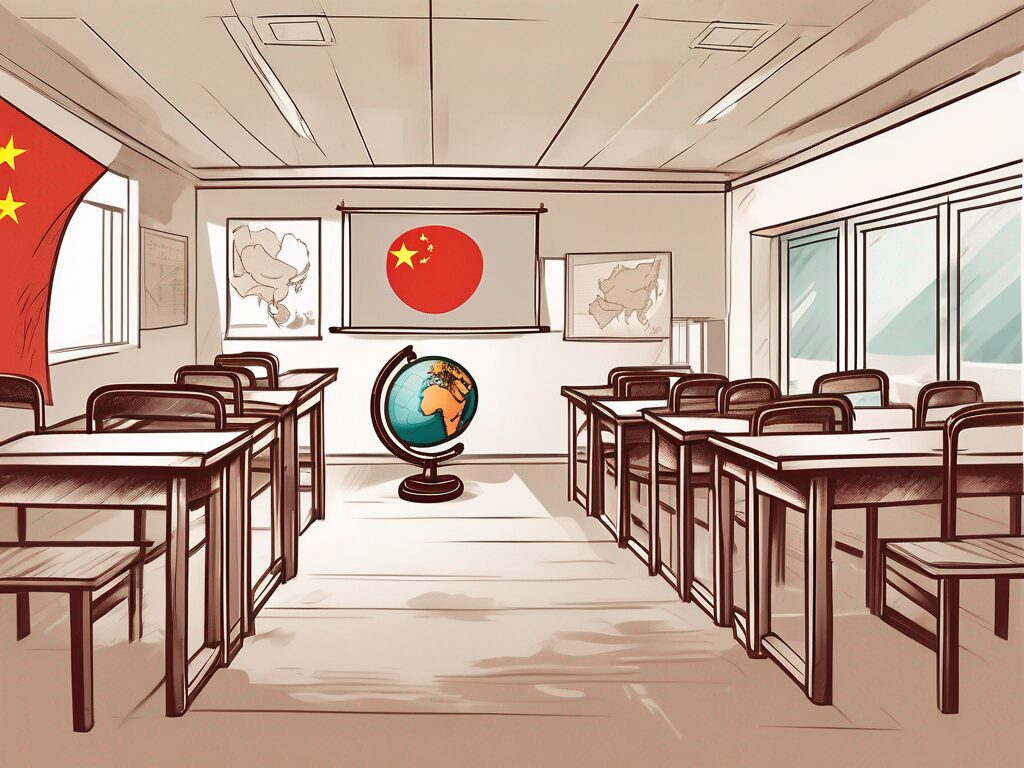China, with its rich history and diverse culture, has become a popular destination for international teachers. However, while the experience can be rewarding, there are several challenges that these educators often face. In this piece, we’ll delve into five common issues that international teachers encounter in China.
1. Language Barrier
One of the most immediate challenges international teachers face is the language barrier. While English is taught in Chinese schools, the level of proficiency varies greatly. This can lead to miscommunication and misunderstanding in the classroom.
Imagine trying to explain a complex concept in physics or literature to a student who barely understands English. It’s akin to trying to solve a jigsaw puzzle with half the pieces missing. Not only is it frustrating, but it can also hinder the learning process.
Overcoming the Language Barrier
Many international teachers overcome this hurdle by learning basic Mandarin. This not only helps in the classroom but also makes day-to-day life in China easier. It’s a bit like having a universal remote for a TV; it just makes everything more manageable.
Additionally, teachers can use visual aids and interactive teaching methods to ensure students understand the lessons. It’s a bit like using subtitles in a foreign film; it helps bridge the language gap.
2. Cultural Differences
China’s culture is vastly different from Western countries. These differences can manifest in various ways, from social norms to teaching methods. For instance, in China, teachers are highly respected, and students rarely question their authority. This is a stark contrast to Western classrooms where open discussion and debate are encouraged.
These cultural differences can feel like stepping into a parallel universe. It’s like going from a bustling city to a quiet countryside; the change can be jarring.
Adapting to Cultural Differences
Understanding and respecting the local culture is crucial for international teachers. It’s like learning the rules of a new game; it helps you play better. Teachers can attend cultural training workshops or engage with local communities to gain a deeper understanding of Chinese culture.
Moreover, teachers should be open-minded and flexible. It’s like being a chameleon; you need to adapt to your new environment to thrive.
3. Teaching Methodologies
Chinese teaching methodologies often focus on rote learning and memorisation, which can be a stark contrast to the more interactive and discussion-based teaching styles common in Western countries. It’s like comparing a lecture to a group discussion; both are effective, but they’re vastly different.
This difference in teaching styles can lead to a clash in the classroom. It’s like trying to fit a square peg in a round hole; it just doesn’t work.
Adapting Teaching Methodologies
International teachers need to strike a balance between their teaching style and the local methodologies. It’s like making a fusion dish; you need to blend the flavours without overpowering one another.
Teachers can incorporate interactive elements into their lessons while still adhering to the local curriculum. It’s like adding a twist to a classic recipe; it keeps things interesting while still maintaining the essence.
4. Workload and Expectations
International teachers in China often face high workload and expectations. They are expected to deliver high-quality education while also participating in extracurricular activities and school events. It’s like being a juggler; you need to keep all the balls in the air without dropping any.
These high expectations can lead to stress and burnout. It’s like running a marathon without any training; it’s exhausting and unsustainable.
Managing Workload and Expectations
Effective time management is crucial for international teachers. It’s like having a good roadmap; it helps you navigate your journey without getting lost.
Teachers should also communicate their concerns to the school management. It’s like asking for directions when you’re lost; it helps you find your way.
5. Legal and Contractual Issues
International teachers may face legal and contractual issues in China. These can range from visa problems to contract disputes. It’s like navigating a minefield; one wrong step can lead to a disaster.
These issues can cause stress and uncertainty. It’s like being on a roller coaster; it’s thrilling but also nerve-wracking.
Navigating Legal and Contractual Issues
Teachers should thoroughly review their contracts before signing. It’s like reading the fine print before buying a product; it helps you avoid unpleasant surprises.
Moreover, teachers should seek legal advice if they face any issues. It’s like having a guide in a foreign land; it helps you navigate the terrain safely.
In conclusion, while teaching in China can be challenging, it can also be an enriching experience. By understanding and overcoming these issues, international teachers can thrive in their new environment. It’s like learning to dance; once you master the steps, you can enjoy the rhythm.
Transform Your Teaching Career with IPGCE
As you navigate the complexities of teaching in China, consider the International Postgraduate Certificate in Education (iPGCE) to enhance your qualifications and career prospects. With IPGCE, you can overcome the barriers of stringent qualification requirements, enjoy a 50% increase in interview callbacks, and unlock a 45% boost in promotion rates. Join a global network of educators, deepen your understanding of international curricula, and balance professional development with your teaching commitments. Don’t let isolation or limited advancement opportunities hold you back. Join the UK’s #1 Teacher Training Course today and step confidently into a brighter future in international education.

